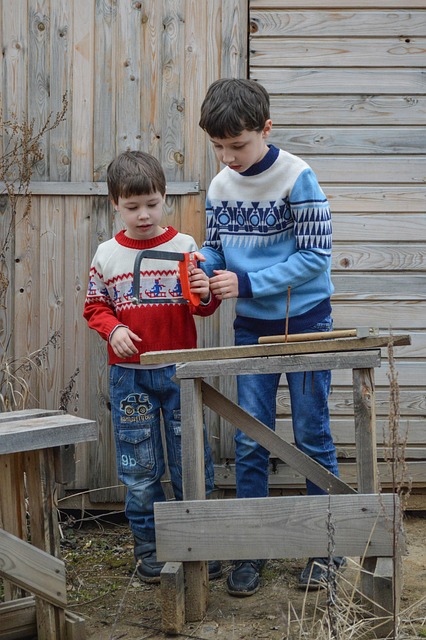
When is help helpful?
We come to helping others naturally. Because of evolution, we are very good at picking up distress in others. For our ancestors, one group member’s distress could affect another, so helping each other increased the group’s survival rate. This sets up the idea of altruistic reciprocity as well; I’ll help you now, so you’ll help me later.
This made sense for our ancestors because of predators, bad weather, gathering food, and finding shelter. It makes less for homework, or housework. In fact, in today’s world we often think about getting attention and approval and avoiding arguments. Basically, we want to keep relationships pleasant. Since any kind of “unpleasantness” can disrupt a relationship, we are pretty sensitive to this and will try to relieve it. Hence, there is a natural desire to help others and to want to be helped by others.
Follow the Discomfort
I’m going to use “discomfort” as a catch-all phrase for any kind of unpleasant feelings. Anxiety, worry, concern, doubts, frustrations, fears, or physical sensations are all manifestations of “discomfort” that we naturally want to get rid of.
As a species, we are very good at picking up these feelings of other individuals. Researchers call this emotional contagion. Thus, when my partner has some discomfort, it’s very normal for me to pick up on this and feel some discomfort myself. Your discomfort is my discomfort, so to speak.
The brain helps us recognize and move away from discomfort. It gets things going to execute a plan to relieve the discomfort. For example, I may recognize that the source of my discomfort is coming from my sensing discomfort in my partner. To reduce my discomfort, the brain runs my “helper” app and chooses the “fix it” option. Or it could choose the “avoid this” app and apply the “ignore” function. (I find it useful to think of my behaviour as “apps” that get selected by me to run. Just like on my phone. This perspective puts the responsibility on me to clean up my “apps”).
So here’s the problem with helping. Often, being helpful comes from trying to relieve some unpleasant feeling that I’m having. (Or to get a pleasant feeling as with the fear of missing out idea). My way of managing MY feelings is to manage YOUR feelings. Instead, using a systems perspective, I should manage “self”, my “self”. Let’s dig deeper into this.
Is my discomfort about another individual an objective perception, for example, a child with a cut knee from a fall? Or is it a subjective projection as in a general worry about my child hurting themselves on the playground?
The subjective projection could make me want to be so helpful that I inhibit my child from playing on a piece of equipment. Or playing without my hovering close by. In addition, they pick up on my worry and can become too cautious themselves. This kind of worry-based “helping” is not helpful. Another example would be the gathering up all of a teenager’s dirty clothes and doing their laundry. If this behaviour is coming from worry about how they’ll look or that they’ll do it wrong, this isn’t really helpful. From a systems perspective, you could call this overfunctioning. Another aspect of unhelpful helping.
Concept of Overfunctioning
Overfunctioning can be thought of as taking on things that I don’t need to. It can be helpful, but it has a downside. In Bowen theory speak, we say it’s borrowing self from another individual. I get to appear over-adequate while others appear under-adequate. I make decisions that the other could or should make. Yes, I’m helping, but I also am controlling. I take on responsibilities that others should own. This can really backfire when other people blame me for things not going right. In our laundry example, the teenager will complain that they don’t have clean clothes!
Anxiety-driven help can be selfish. In the laundry example, the parent doesn’t want to argue with the teenager or be embarrassed about how they look. So they do the laundry themselves, but it is for subjective projections and not based on reality. The teenager is capable to doing their laundry.
Try this thought experiment. If you would not have any worry at all about a situation, would you bother helping? Most likely not. In the above example, the teenager would face the consequences of not doing his or her laundry. They would master the skill of keeping clothes clean. There might be some unpleasantness along the way, but if the parent can manage themselves and not cave in because of the “unpleasantness,” the teenager will figure it out. Managing self is an important aspect to providing “helpful” help.
It’s not the help that’s the problem really; it’s the intention behind it. Different intentions create different help.
What is Non-Anxious Helping?
What does non-anxious helping look like? It would have the following qualities. Notice that these also represent how a more differentiated person would function. Good helping is about managing self in relation to the other person and the situation. Here a list of things to consider.
– Letting the other person figure things out.
– Holding the other person as “able”.
– Letting the other person be the decision maker.
– Allowing the other person to be responsible for self, their choices and actions.
– Not telling a person what to do or how to do it.
– If asked, provide ideas for the other person to think about.
– If asked, sharing my thinking or opinion.
– Getting clear for myself what is reality-based perception versus my subjective projection.
– Noticing and managing my discomfort so I don’t let that drive my helping.
What is an example of a reality-based need? A person might not be physically strong enough to change a tire, so helping them is reality-based. Letting your young adult child figure out how to resolve a situation, with a few suggestions, is helpful. Helping a child ride a bike is helpful. Initially. Training wheels are helpful, but can quickly get in the way. Don’t be “training wheels” for other people!
A more differentiated person would understand the benefit to another person of letting them struggle and find a solution for themselves. Not “fixing it” for them, but offering ideas or some help if asked. (Note – training is helpful, and it falls into a different category. Training gets a person going, so they don’t need future help).
A more differentiated person would also recognize when another person needs to take more responsibility for self. There is a difference in being responsible TO another versus being responsible FOR another. Being responsible to a partner means I’ll hold up my side of the relationship. And Ill let you hold up yours. When commitments are made, they should be honoured. This differs from being responsible “for” my partner, as if they cannot be responsible for themselves.
What over helping misses
My experience is that most individuals don’t change unless they need to. The need might be a positive motivation or something that forces them to change. In both cases, the pain of changing has to be less than the pain of the status quo. Since the pain of changing will often be constant, the pain of the status quo has to get worse. This is the idea of hitting “rock bottom” before a lasting change takes place. But the discomfort of letting this process take place often gets people to help too much. They enable less responsible behaviour so they don’t have to feel discomfort. This is not “helpful” help, in my opinion.
Some of the above if over generalized. If my partner is sick with a high fever, of course I’m going to be anxious about that. I’ll do things for them. This is an example of objective perception and much less subjective projections. But even in this case, the less anxious I am, the more helpful I can really be. That’s because my thinking will be clearer and more objective. Objective clarity is a good thing when helping others. Ironically, it will often result in less “helping”, which is helpful.
Being helpful isn’t easy
Helping in a way that is “clean” and not driven by self-soothing is hard. Well, it is for me. But having these ideas has helped me think through situations. When faced with a situation, I try to think about “theory” and manage self. And I look at my level of discomfort. I’ve learned that just being present and listening is all the help that’s useful.
Of course, think about this post and decide for yourself if any of it is helpful.
Dave Galloway
I appreciate your interest in thinking systems.
You can reach me at dave.galloway@livingsytems.ca
For more on Bowen Family Systems Theory, go here.
Check out our podcast series on Spotify or YouTube.


